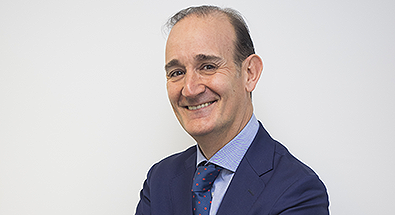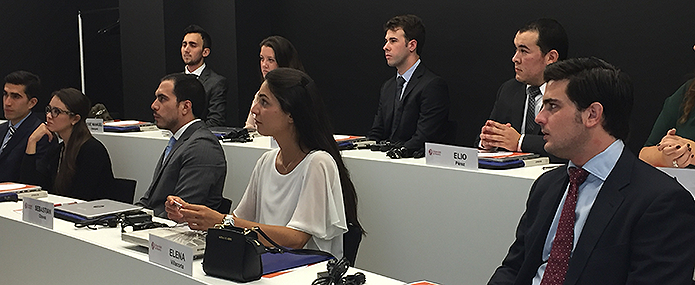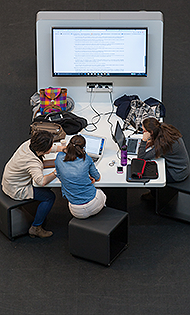40 students of the School of Economics promote the internationalization of 16 companies with their Final Projects. Degree
A total of 123 students and 45 companies have participated in the program since its inception in 2013

A total of 40 students have collaborated in the expansion of 16 companies in 19 different countries, through the subject work End of Degree of internationalization, offered by School in the last year of degree program. From their country of exchange, the students have made a real research and demanded by SMEs, mostly from Navarra, for the opening of these in the country of destination.
The subject, which began in 2013 and each year sample a greater welcome, has brought together a total of 123 students and 45 companies. For the next academic year 17/18, the program already has 39 students and 19 companies. Álvaro Bañón and Javier Martínez are the professors in charge of bringing together the business needs with the destinations of student body. Bañón, founder of subject, tells us about the ingredients of success:
Q. How did the idea come about?
R. We decided to combine the need for our final year students to carry out a final year work Degree , with the interests of numerous companies, mainly from Navarre, to have programs of study market information about their products or services in other countries. We approached the Confederation of Businessmen of Navarra and they welcomed topic with enthusiasm. Since then the program has grown year by year.
Q. What lessons do you think the students have learned, both in terms of professional skills and commitment to a social reality?
R. Through the TFG of internationalization, students have learned to relate to the "real world" of the business, to meet stipulated deadlines, to overcome difficulties at destination (it is not always easy to obtain information), to "get by", of course, to write an academic paper, to order information, to draw useful and valid conclusions for companies, etc..
Q.Which groups have benefited from the service dimension of project?
R. In addition to the students and the University, the beneficiaries are small companies that otherwise would not be able to obtain information on these markets, because they do not have the economic capacity to obtain it. The Degree of satisfaction is very high because the repetition rate is very high, requesting more and more TFGs.
Q. How did the students rate their participation in the project?
R. The students have been very positive about project. For many of them it is their first contact with the business and with the "real world". They value it and above all, they value the fact that their work is really useful for a concrete business . It gives them a sense of reality of their work that is very valuable. Several of them have had "offers" from work from the companies for which they have done their end-of-degree work Degree , upon completion.
P. As a professor, what is your overall assessment of the initiative, and what has it brought you personally?
R. I think it is a totally positive balance, everyone wins, the students, the companies and the University. I have seen magnificent work carried out in complicated countries and I have seen how many students have overcome difficulties they thought they could not overcome. I have also seen how many SMEs have obtained invaluable information in this way, which otherwise they would never have been able to obtain. Everybody wins. On the one hand, the University financial aid helps companies in Navarra in their necessary effort to internationalization and, on the other hand, it provides its students about to graduate with a very interesting and executive contact with the "real world".


